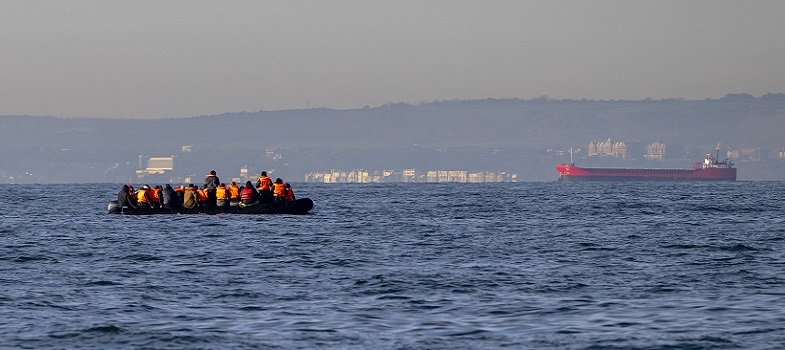6 Mental health risks when working with traumatised people
We now turn to the topic of how the mental health and wellbeing of search-and-rescue (SAR) workers can be affected if they observe pushbacks and other human rights violations in their work.
The nature of the work of maritime SAR can involve witnessing and working through traumatic and tragic incidents and having direct contact with traumatised individuals. It is important that SAR workers are aware of the warning signs that might suggest that their mental health or wellbeing is being affected by the work that they do.
This section discusses the impact that working with traumatised individuals, such as people seeking asylum, can have on the mental health and wellbeing of SAR workers.
This section aims to build awareness of the importance of maintaining mental health and wellbeing whilst working in the field of maritime SAR and to develop a practical strategy to prepare for, cope with and build resilience from potential emotional challenges.
Activity 4: Reflection
How would you describe your current level of awareness of mental health and wellbeing?
Supporting people who have survived dangerous crossings by sea can be physically and emotionally demanding since they may have endured previous traumatic experiences prior to the more recent stressful experience of crossing the sea.
Survivors of crossings at sea may, for example, have physical injuries, including burns from saltwater or fuel from the small boats they travelled in (Taylor, 2022). They may have sea sickness or hypothermia, or they may be in shock. They may have witnessed drownings of friends, family or other people who attempted to cross.
Activity 5: Reflection
Reflect on the potential risks to your mental health and wellbeing whilst involved in the field of maritime SAR. You may wish to consider the specific role you currently have, or have had, or are considering starting.
Answer
There are various ways in which someone's mental health and wellbeing may be affected from working with traumatised individuals in maritime SAR. Supporting people who are seeking safety from war, environmental disaster, poverty, physical harm for their political, religious or sexual identity can be emotionally draining particularly if in direct contact with them for a prolonged period of time.
There are various ways in which SAR workers’ mental health and wellbeing may be negatively affected from working with individuals who have experienced traumatic events. Two common harmful changes to workers’ wellbeing are associated with vicarious (or secondary) trauma and burnout.
5.4 Bilateral agreements
